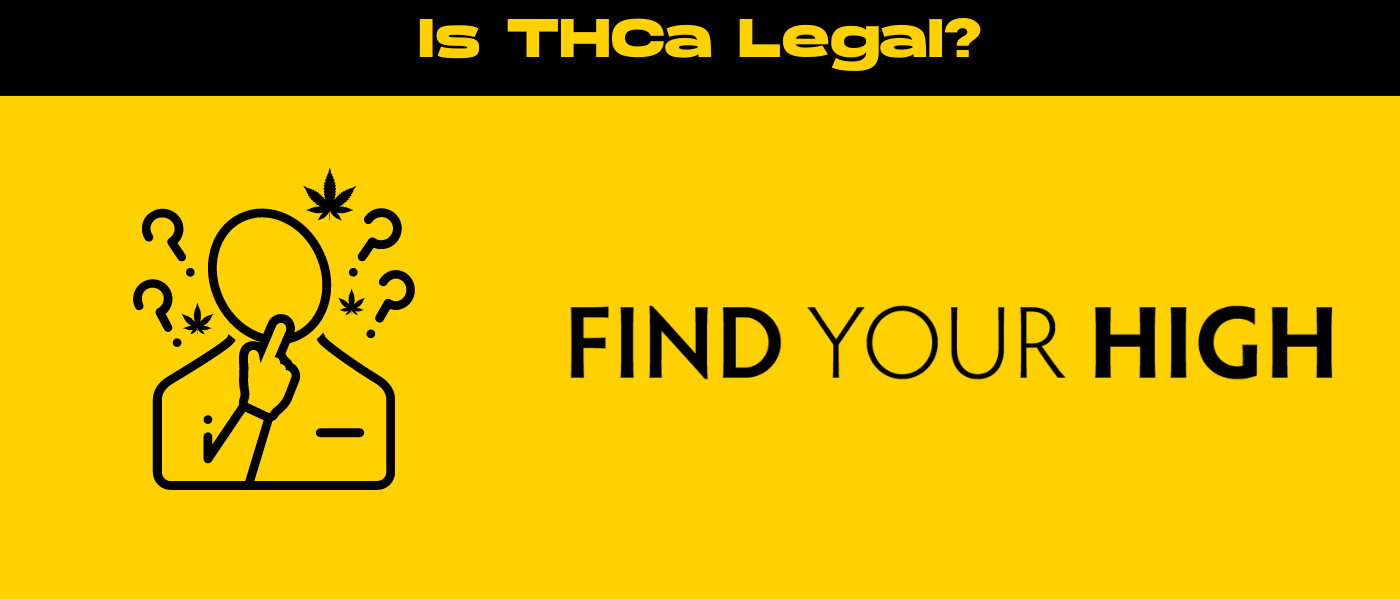So, you’re about to place your first Hyperwolf Hemp order and you’re wondering, ‘is THCa legal?’ We appreciate the caution, so we’re happy to give you the breakdown!
But before we can dive into the legal landscape surrounding the question is THCa legal, let’s take a moment to discuss the ABCs of THCa—without getting too “Breaking Bad” on you.
Think of THCa as THC’s baby cousin, the one that hasn’t hit the rebellious phase yet. THCa (tetrahydrocannabinolic acid for short) naturally occurs in the cannabis plant. It’s completely non-psychoactive until—BAM—it gets heated and morphs into THC through a process known as decarboxylation.
Now, onto the legal stuff. In this blog, we’ll uncover everything you need to know about the current legal status of THCa in the United States. Spoiler alert: THCa derived from hemp flower is a loop-hole protected under the 2018 Farm Bill — but more on that later.
Let’s begin!
Cannabis Plant Breakdown
Alright, Cannabis 101 coming right up.
Picture a cannabis plant; it’s not just a pretty face with its iconic leaf and all. Our favorite green herb is made up of more parts than a smartphone, with everything from its sticky, resinous buds to the less glamorous, yet equally important, stems and leaves.
Now, the real magic happens when we zoom in on the compounds that make up these cannabis plants. You’ve probably heard of CBD, right? The chill pill of the cannabis world? Then there’s THC, the life of the party, making you feel like you’re the main character in a stoner comedy. And let’s not forget THCa—THC’s precursor.
These compounds each have their contributions to the overall cannabis experience, creating the most well-rounded high possible with cannabis buds. So whether you’re here for the wellness, the giggles, or the science, there’s a cannabinoid out there for you.
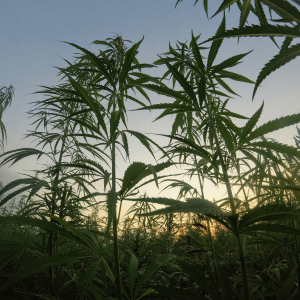
The Legal Tangle of Cannabis
So, is THCa legal? Well, from 1937 to 1996, both medical marijuana and recreational cannabis were completely illegal. Laws were stiff, and anything remotely fun was given the side-eye.
A Brief History of Cannabis Laws: From Prohibition to Prescriptions
Cannabis, once a household name in the 19th century for all sorts of remedies, got caught in a riptide of regulations. By the 1930s, the United States banned all cannabis and other hemp derived products, through the Marihuana Tax Act. Note that hemp is the plant cannabis sativa L.
Fast forward through decades of prohibition and suddenly, states were switching gears. With California lighting up the movement in 1996 for medical use, cannabis started to shed its bad rep.
The Farm Bill Saga: Legal Hemp, Marijuana, and the Legal Gray Area
Then came the plot twist—The Farm Bill of 2018. This legal page-turner was like the glow-up for industrial hemp, giving it a distinction from marijuana (which is illegal under the Controlled Substances Act) based on THC content.
Hemp products, with less than 0.3% THC, were now protected under federal law. This helped to clear up any confusion for stoners wondering is THCa legal. Meanwhile, recreational marijuana itself was still in the gray area of the law.
So, where does that leave THCa flower? In layman’s terms, it’s sitting in limbo. Because it’s not psychoactive until it turns into THC, it’s like finding a loophole—not technically breaking the rules. It’s this legal sidestep that keeps THCa in the clear.
And that’s the lowdown on the legal labyrinth that is cannabis. Stick around, and we’ll chat some more about what all this means for your wellness routine, your Friday nights, and—yes—your Hyperwolf Hemp orders.
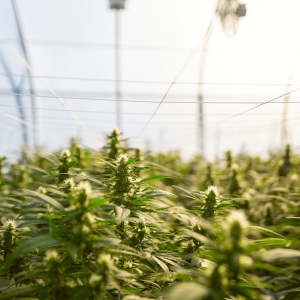
Is THCa Legal in Other Counries? THCa’s Legal Status Explained
Alright, let’s hop on a global tour of THCa’s legal status, shall we?
Here in the USA, it’s complex. Each state has its own rules and regulations when it comes to cannabis laws. Under federal law, thanks to the 2018 Farm Bill, you’re in the clear with THCa as long as it’s from a hemp plant with that magic number of 0.3% THC or less. So, is THCa legal in the USA? Yes.
Now, across the pond and around the globe, the tune changes. While some countries have hemp-friendly hemp laws, others… not so much.
Countries like Canada are pretty open, treating THCa flower much like they treat THC, but under strict regulations. Then there’s the Netherlands, where coffee shops might give you a wink with your latte, hinting at their famously relaxed cannabis policies.
Meanwhile, in parts of Asia and the Middle East, it’s a hard ‘no-go’—the laws are super strict, so you wouldn’t want to play hide and seek with THCa there.
So, is THCa legal in every country? Or even decriminalized? Absolutely not. With that being said, whether you’re planning to cross state lines or fly over oceans with your trusty THCa products, make sure you do your homework ahead of time.
From Lab Coats to Courtrooms: Science’s Influence on Green Legislation
Research is buzzing with chatter about how THCa flower might just be the new biggest thing within the cannabinoid family.
Studies are looking into how it could help keep inflammation in check, shake off nausea, and protect those precious neurons in your brain. And because we’re all about keeping it real — no, we’re not claiming it’s a miracle cure — but the potential is pretty cool.
Now, here’s where it gets juicy. These studies don’t just gather dust on a shelf; they play a part in shaping the laws. So while legislation might seem slower than a sloth on a lazy Sunday, research on THCa helps it keep up with the times.
Keeping an eye on this interplay could mean big things for your wellness game, public health, and maybe your next Hyperwolf Hemp haul. In other words, stay tuned — science and law are crafting the future of cannabis hand in hand.
But Does THCa Get You High? Debunking Myths
It’s time to set the record straight. THCa flower in its natural state isn’t going to send you to the moon. After all, that’s why it’s legal. Only when it’s heated upon consumption will you experience its psychoactive effects.
Psychoactive Properties (or lack thereof) of THCa
Let’s geek out for a second without going full mad scientist.
THCa is like a version of THC that hasn’t tapped into its wild side yet. When THCa says “see ya!” to its carboxyl group (that’s science-speak for a little chemical makeup shift), then you get THC—the compound everyone knows for its psychoactive high.
This only happens when you heat things up, like when you’re vaping or baking brownies. So, if you’re just munching on raw leaves like a rabbit, no high for you.
Countering Common Misconceptions
We all have an Aunt Karen sharing eye-roll-worthy myths on social media. She’ll swear on her essential oils collection that “just touching the stuff will get you high!”
But here’s the real scoop: straight-up THCa isn’t psychoactive, and handling it isn’t going to alter your state of mind.
In the end, the only thing THCa might heighten is your curiosity, especially once you dive into the science behind this fascinating cannabinoid.
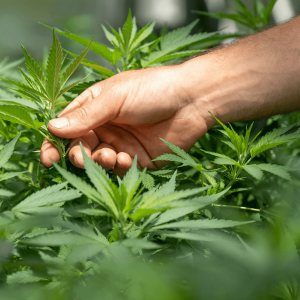
Is THCa Legal? How THCa Is Tested And Regulated
Testing THCa is all about timing and expertise. Scientists have their hands full making sure THCa is just the right kind of chill before it hits the shelves.
They have gadgets and gizmos aplenty, testing THCa levels to ensure they’re under that 0.3% THC federal limit. Because, in the end, the law’s the law — and staying on the sunny side of it keeps everyone out of hot water.
As they toggle between safety and efficacy, researchers do a delicate dance to bring you the good stuff without any fuss. It’s this balance that helps you get high without worry — or a sudden need to explain yourself to the authorities.
So next time you snag some THCa goodies, just remember that third-party testing has your back.
The Consumer’s Guide to THCa
Considering hopping on the THCa train? Before you swipe your card, here are the details you have to check:
- Strain Game: Unsurprisingly, there are loads of cannabis strains. Do some digging on which strains are known for high THCa levels.
- Local Laws: Don’t buzzkill your good times. Scope out your local laws to make sure you’re in the clear with growing or buying THCa products.
- Quality Check: If it looks sketchy, it probably is. Look for reputable sources that have solid reviews or come recommended by other hemp enthusiasts.
- Test Reports: Legit sellers often show off their third-party test results. No report? That’s a red flag.
- Price Check: If it’s dirt cheap, your spidey senses should tingle. Good quality might cost a bit more, but it’s worth it for the peace of mind.
Label Literacy: Understanding Product Testing and Labels
Becoming a label-reading master is key. Here’s how to crack the code of THCa product labels:
- THC Content: Remember the magic number—below 0.3% THC. Labels should show the THC content to keep things legal and easy-breezy.
- Source Story: Is the THCa sourced from legit hemp? Ensure the label explicitly says so.
- Lab Seal of Approval: Third-party testing ensures that the product you’re getting has been checked out by unbiased pros.
- Ingredient List: Keep it clean. The fewer ingredients, the better. Suspicious chemicals? No, thank you.
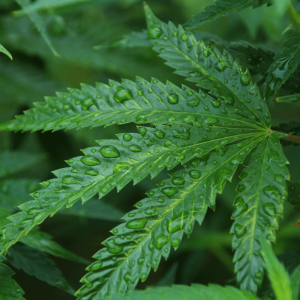
Healthcare’s Stance on THCa
If you’ve been keeping tabs on cannabis convos, you’ve probably heard the buzz about THCa.
Now that you’re no longer wondering whether or not is THCa legal, let’s see what the stoners in the white coats think about it.
Doc Talks: Health Care Professionals Weigh In
Now, we aren’t doctors, but we’ve chatted with a few. Healthcare professionals are getting pretty psyched about the potential health benefits THCa might have.
We’re talking about benefits like reducing inflammation and even nausea — sounds like a win, right? But despite the promising chit-chat, the medical community is still tip-toeing around THCa to avoid side-stepping any federal government regulations.
Pioneering Treatments and Trials with THCa
And then there are the daredevils of medicine, always down to explore uncharted territories. These trailblazers are experimenting with THCa in clinical trials, eyeing it as a possible sidekick in treating a number of different health conditions.
So, is THCa a medical marvel or a legal landmine? That’s the burning question. On one hand, we have a compound that’s turning heads for all the right reasons. On the other hand, lawmakers are keeping a watchful eye, making sure everything’s by the book.
As for us? Let’s stay tuned, keep the conversation light and curious, and who knows? Maybe one day we’ll see THCa within legal healthcare.
Conclusion: Is THCa Legal?
To wrap it up, we’ve uncovered the good, the bad, and the straight-up fuzzy while answering the question, ‘Is THCa Legal?’
Let’s break it down. The good: THCa has perks that have health gurus and the canna-curious excited. Also, because it is THCa hemp flower, it’s not considered among one of the many controlled substances in the United States under federal law.
The bad: there’s still a bit of a gray area regarding the legal uncertainties hovering over THCa, so you have to navigate those waters carefully. This rings especially true if you plan to travel overseas with your favorite hemp-derived products.
And the fuzzy? Well, that’s just all the head-scratching, the myths (looking at you, Aunt Karen), and the “what-ifs” still left to sort out.
Looking ahead, it’s about staying informed, riding the wave of research, and keeping the dialogues open. Hopefully, with more clarity and open minds, we’ll roll towards a future where THCa can be in the healthcare spotlight, with any legal tangles smoothed out.
So, here’s to the high road ahead — may it lead to greener pastures and clear blue skies for THCa fans everywhere.
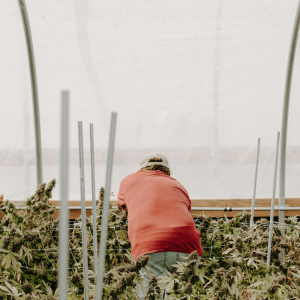
Frequently Asked Questions
1. What is THCa and why is it legal?
THCa, short for Tetrahydrocannabinolic acid, is a non-psychoactive precursor to THC found in both raw cannabis buds and live cannabis. As it doesn’t produce a high unless decarboxylated (heated), it manages to skirt the legal issues that THC faces. It’s considered federally legal under federal law if derived from legal hemp and containing less than 0.3% THC.
2. Is THCa a controlled substance?
Under federal law, THCa is not among the controlled substances as long as it’s derived from legal hemp and contains less than 0.3% THC. However, laws can vary widely at the state level, so it’s crucial to check local regulations to ensure that THCa hemp and hemp products are legal in your area.
3. Do drug tests detect THCa?
Most standard drug tests are designed to detect THC, not THCa. However, because THCa can convert to THC in the body or through exposure to heat, there’s a possibility it could cause a positive drug test result. Always use caution and consider the potential risks before using THCa products if you’re subject to drug testing.
4. Which is stronger, THCa or Delta 8?
Delta 8-THC is a psychoactive cannabinoid, whereas THCa is not psychoactive in its raw form. This means that in terms of producing a “high,” Delta 8-THC is stronger. However, when THCa is decarboxylated and becomes THC, it can produce stronger psychoactive effects than Delta 8-THC or Delta-9 THC.
5. Is THCa legal?
THCa’s legality hinges on its source and THC content. Federally speaking, it’s legal if it’s hemp-derived and contains less than 0.3% THC. Yet, federal and state laws vary, and it’s crucial to review local statutes for potential differences.
6. Which is stronger, THCa or Delta 9 THC?
Delta 9-THC is definitely the stronger one when it comes to psychoactive effects. While THCa has to be converted (through decarboxylation) to become psychoactive, Delta 9-THC is potent and active in its original form, providing the classic “high” associated with cannabis.
It’s worth noting, however, that THCa presents the same “high” associated with Delta 9 THC once it’s been heated through a process known as decarboxylation.

 Rewards
Rewards




